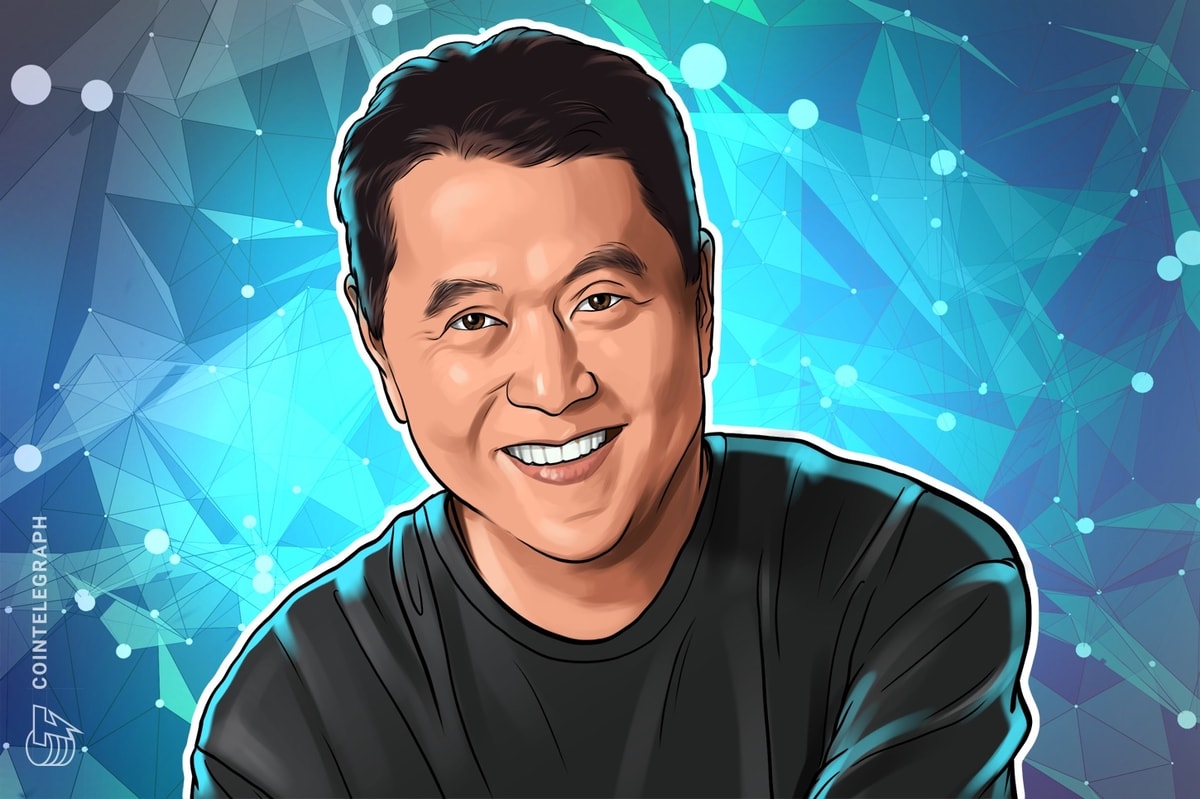Are Kids Being Brainwashed to Work for Fake Money?

Published: 2025-09-18 06:29:58 | Category: Finance-Crypto
Robert Kiyosaki, the author of "Rich Dad Poor Dad," advocates for Bitcoin as a superior alternative to fiat currencies, which he argues are inflationary and detrimental to financial education. He criticises traditional education for promoting a system that encourages young people to earn "fake money," rather than understanding the value of real assets like Bitcoin.
Last updated: 12 October 2023 (BST)
Understanding Kiyosaki's Critique of Traditional Financial Education
Kiyosaki's views challenge the conventional wisdom surrounding money management and financial literacy. He believes that the education system perpetuates a cycle of poverty by teaching students to seek traditional employment and save in inflationary currencies. This perspective is grounded in the belief that financial education should equip individuals to recognise and invest in real assets.
Key Takeaways
- Kiyosaki argues that traditional financial education is flawed and promotes reliance on inflationary currencies.
- He claims that central banks exacerbate wealth inequality through money printing.
- Bitcoin, according to Kiyosaki, serves as a hedge against inflation and wealth erosion.
- Countries facing inflation are increasingly turning to cryptocurrencies for financial stability.
- Kiyosaki predicts Bitcoin could reach £1 million in the next decade.
The Flaws in Traditional Financial Wisdom
Kiyosaki criticises the traditional mantra of "go to school, get a job, work hard, and save money," calling it outdated and ineffective. He believes that this approach leads individuals to accumulate wealth in an inflationary environment, which dilutes purchasing power over time. According to Kiyosaki, this indoctrination leaves many "poor" because they are unaware of what constitutes "real money."
He posits that the education system, embodied by his "poor dad" figure—who represents the conventional mindset—fails to prepare students for the realities of modern finance. Instead, it reinforces a cycle of dependency on unstable currencies. Kiyosaki’s assertion that central banks function like "criminal organisations" highlights his belief that their policies disproportionately benefit the wealthy while burdening the middle and lower classes.
The Impact of Inflation on Wealth
Inflation directly affects purchasing power, and recent statistics illustrate this concern. For instance, the US Bureau of Labor Statistics indicates that a person holding $1,000 from August 2000 to August 2005 would have lost nearly 47% of their purchasing power due to inflation. The Federal Reserve aims for a stable 2% inflation rate, but recent figures show a headline inflation rate of 2.9% as of August 2023, with core inflation slightly higher at 3.2%.
This situation has led many individuals to seek alternative forms of currency, such as Bitcoin, which has seen a meteoric rise, increasing more than 900% in value over the past five years. Kiyosaki argues that while central banks print money, which he refers to as "fake stuff," the rich grow richer, while the poor and middle class suffer the consequences.
Kiyosaki’s Bitcoin Journey
Robert Kiyosaki's journey with Bitcoin is a testament to his belief in digital currencies as a hedge against inflation. He began investing in Bitcoin when it was priced at £4,800 (roughly $6,000) and now holds approximately 60 BTC, valued at around £7 million. He admits to wishing he had purchased more, indicating his strong conviction in the cryptocurrency's future.
Kiyosaki's investment strategy extends beyond Bitcoin, as he uses income from his rental properties to accumulate various assets, including gold, silver, and Ethereum. His bullish stance on Bitcoin is coupled with a cautious approach, as he previously expressed concerns that all assets, including Bitcoin, could experience significant downturns, suggesting that he would increase his holdings during such periods.
The Role of Bitcoin in Inflationary Economies
Countries grappling with high inflation rates have increasingly turned to cryptocurrencies as a financial refuge. For example, in Venezuela, where inflation recently reached an alarming 229%, many citizens have adopted stablecoins, such as Tether (USDT), to preserve their purchasing power. The value of the Venezuelan Bolívar has plummeted, with one US dollar trading for 161.74 Bolívar compared to 51.95 Bolívar earlier in the year, making cryptocurrencies a viable alternative for day-to-day transactions.
Similarly, analysts like Saifedean Ammous and Raoul Pal predict that people in inflation-stricken nations will gravitate towards Bitcoin and other cryptocurrencies as a safeguard against currency devaluation. Kiyosaki's views resonate with these trends, reinforcing the notion that Bitcoin is more than just an investment; it is a potential lifeline for those affected by economic instability.
Challenges and Considerations for Investors
Despite his optimistic outlook on Bitcoin, Kiyosaki advises caution regarding Exchange-Traded Funds (ETFs), which he describes as "paper assets." He believes these assets are susceptible to market fluctuations and bank runs. While he acknowledges that ETFs offer an accessible entry point for retail investors, he warns that true wealth should be built through tangible assets rather than paper representations.
His predictions for Bitcoin's future value—potentially reaching £1 million in the next decade—are ambitious, yet they reflect a growing belief in the cryptocurrency's long-term viability. However, Kiyosaki has also voiced the need for investors to remain vigilant, as market conditions can shift rapidly, impacting asset values significantly.
Conclusion: What Lies Ahead for Bitcoin and Traditional Money?
Robert Kiyosaki's strong advocacy for Bitcoin raises critical questions about the future of money and the education surrounding it. As inflation continues to challenge traditional currencies, the rise of cryptocurrencies presents new opportunities and risks for investors. Kiyosaki's insights serve as a reminder that financial literacy is crucial in navigating these turbulent economic waters.
As individuals seek to protect their wealth, will they turn increasingly towards digital currencies like Bitcoin, or will traditional assets continue to hold sway? The landscape of finance is evolving, and how one responds to these changes could define their financial future. #Bitcoin #Inflation #FinancialLiteracy
FAQs
What does Robert Kiyosaki mean by "real money"?
Robert Kiyosaki refers to "real money" as assets that retain value, such as Bitcoin, gold, and silver, contrasting them with inflationary fiat currencies.
Why does Kiyosaki criticise central banks?
Kiyosaki criticises central banks for their role in printing money, which he believes contributes to wealth inequality and erodes the purchasing power of the middle and lower classes.
How has Bitcoin performed in recent years?
Bitcoin has experienced significant growth, rising over 900% in value in the past five years, showcasing its potential as a hedge against inflation.
What advice does Kiyosaki offer to investors?
Kiyosaki advises investors to focus on tangible assets like gold, silver, and Bitcoin, while being cautious of paper assets like ETFs, which he believes are vulnerable to market instability.
What are the implications of high inflation on currency value?
High inflation erodes currency value, prompting individuals in affected countries to seek alternative currencies, such as cryptocurrencies, to preserve their wealth.



